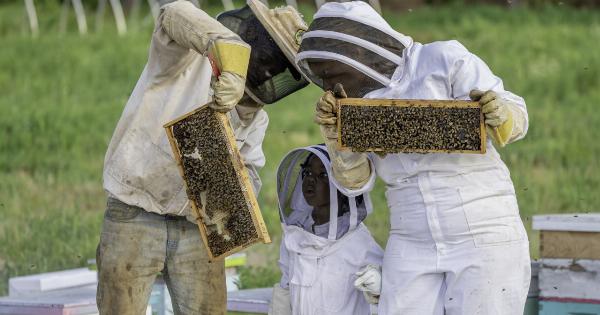Talking about sex with your child is a crucial step in their development, especially in today’s world where children have access to various sources of information, many of which may not be appropriate for them.
However, having a conversation about sex with your child can be challenging, and many parents struggle to handle the topic without feeling awkward or uncomfortable.
Here are the dos and don’ts of talking to your child about sex:.
Do Start Early
Experts recommend that parents start talking to their children about sex early on, even before they start asking questions. This way, the topic becomes less taboo, and your child sees it as a natural part of their development.
You can start by using age-appropriate language and explaining how babies are made.
Don’t Be Too Technical
While it’s important to be honest and accurate about the facts of sex, it’s also important not to overwhelm your child with too much information.
Keep the conversation simple without going into too much detail that your child might not be ready to understand. Gauge your child’s understanding and tailor the conversation to their level.
Do Encourage Questions
Encourage your child to ask questions and create an open dialog about sex. This way, your child feels comfortable coming to you with their questions instead of turning to other sources that may not be reliable or age-appropriate.
Don’t Shame Your Child
Avoid shaming your child or making them feel guilty for asking questions about sex. Keep an open mind and create a safe space for your child to talk about the topic.
It’s natural for children to be curious about sex, and it doesn’t mean that they’re engaging in any inappropriate behavior.
Do Talk About Safety
When talking to your child about sex, it’s crucial to discuss safety measures and the importance of healthy relationships. Talk about contraception, STDs, and ways to protect themselves, both physically and emotionally.
Make sure to instill in them the value of respecting their bodies and the bodies of others.
Don’t Focus Solely on the Physical Aspects of Sex
While the physical aspect of sex is undoubtedly an important topic to discuss, it’s also essential to talk about the emotional and mental aspects of sex.
Discuss the importance of consent, healthy relationships, and why waiting until they’re emotionally ready for sex is essential.
Do Use Resources
There are many resources available to help you talk to your child about sex, such as books, videos, and websites. Use these resources to supplement your conversation and reinforce the information you’ve shared with your child.
Don’t Assume They Know Everything
Even if you think your child already knows about sex, it’s essential to have the conversation with them.
Many children receive incomplete or inaccurate information from their peers or other sources, and it’s important to correct any misconceptions they may have.
Do Follow Up
After your initial conversation, make sure to follow up with your child and check-in with them regularly. Ensure that they’re still comfortable talking about the topic and answer any new questions they may have.
Don’t Avoid the Conversation
As uncomfortable as it may be, avoiding the conversation about sex with your child can have serious consequences. Your child may turn to unreliable sources for information, or worse, engage in risky behavior without fully understanding the implications.
Start the conversation early and keep an open dialog to ensure that your child has a healthy and supportive understanding of sex.



























